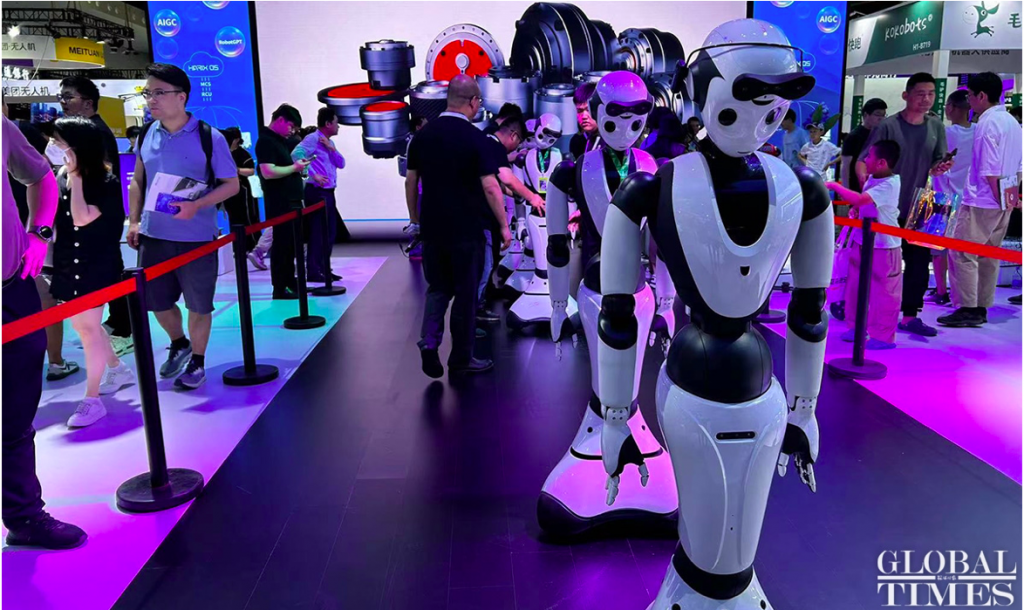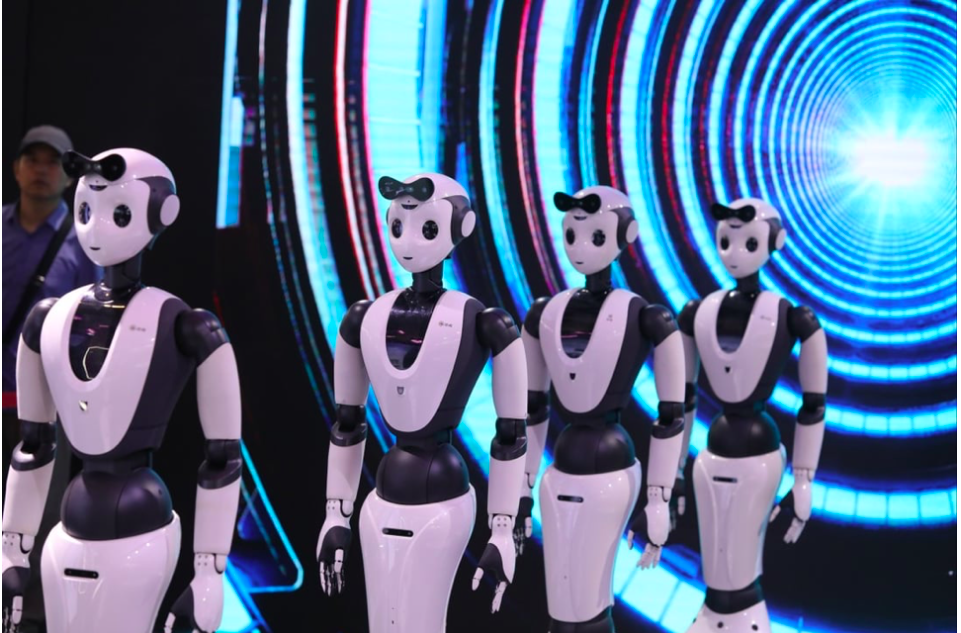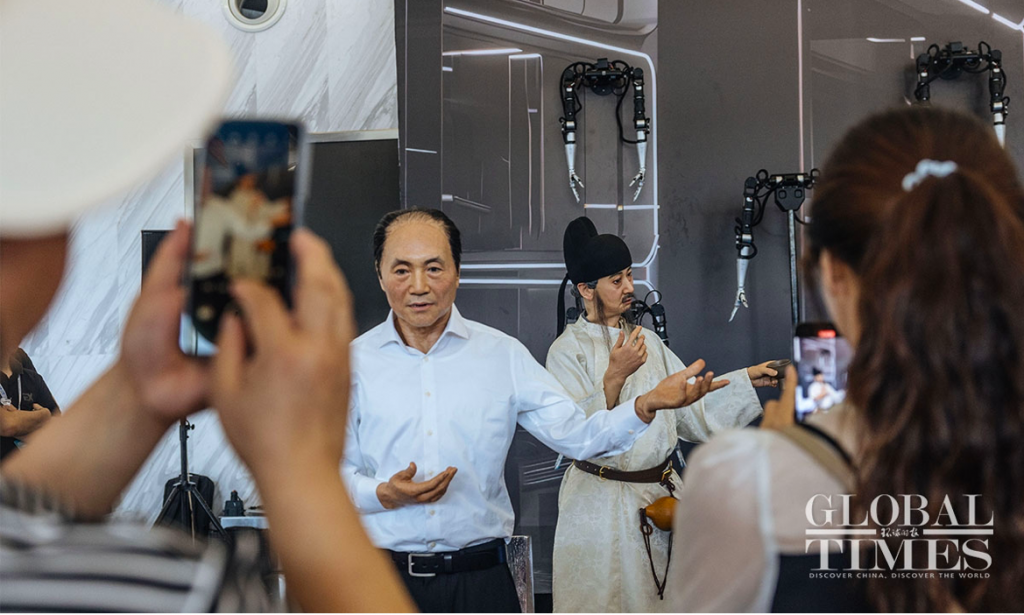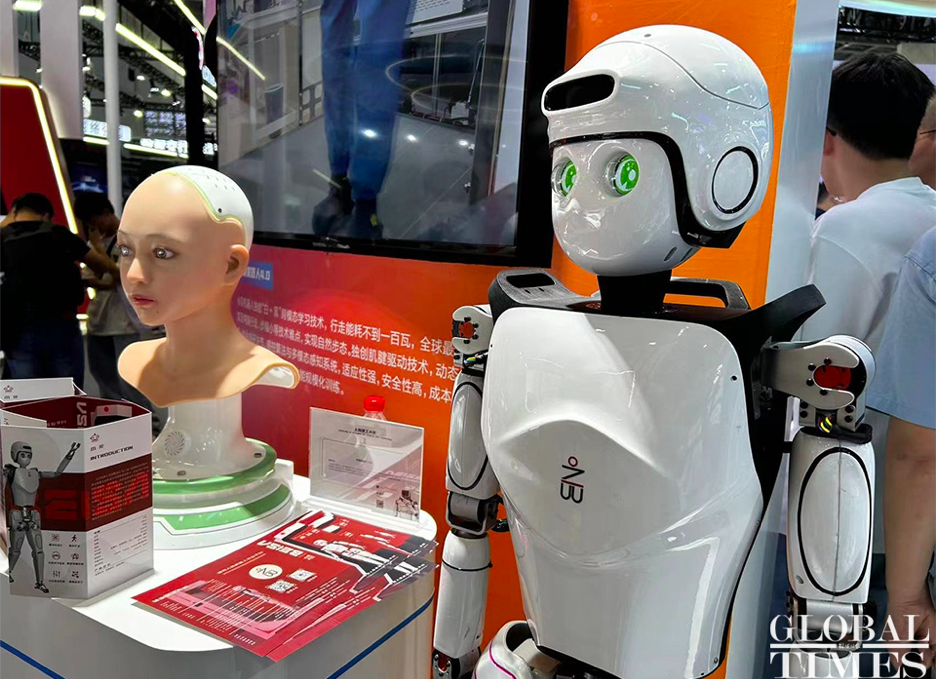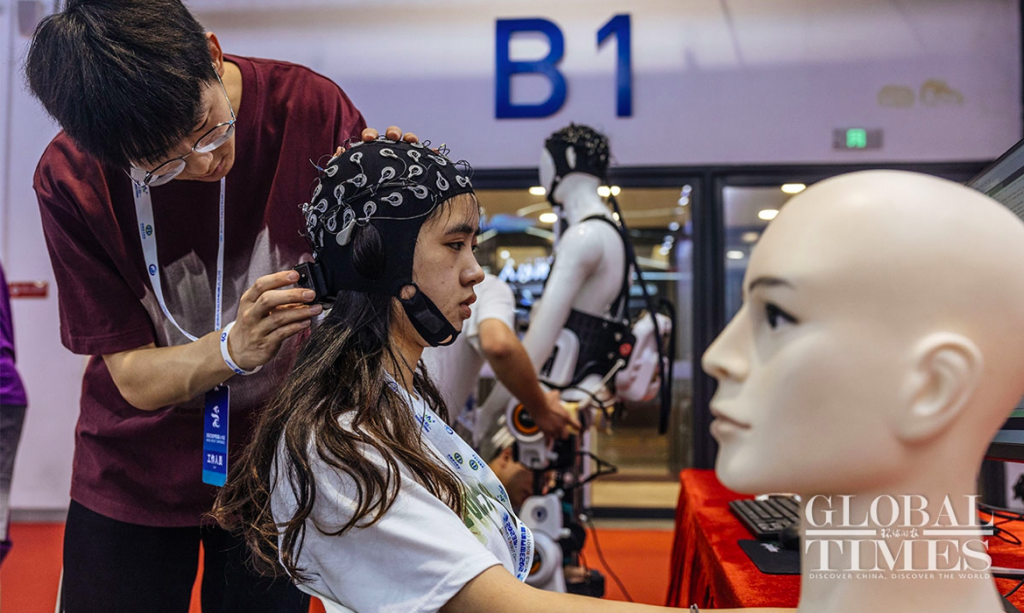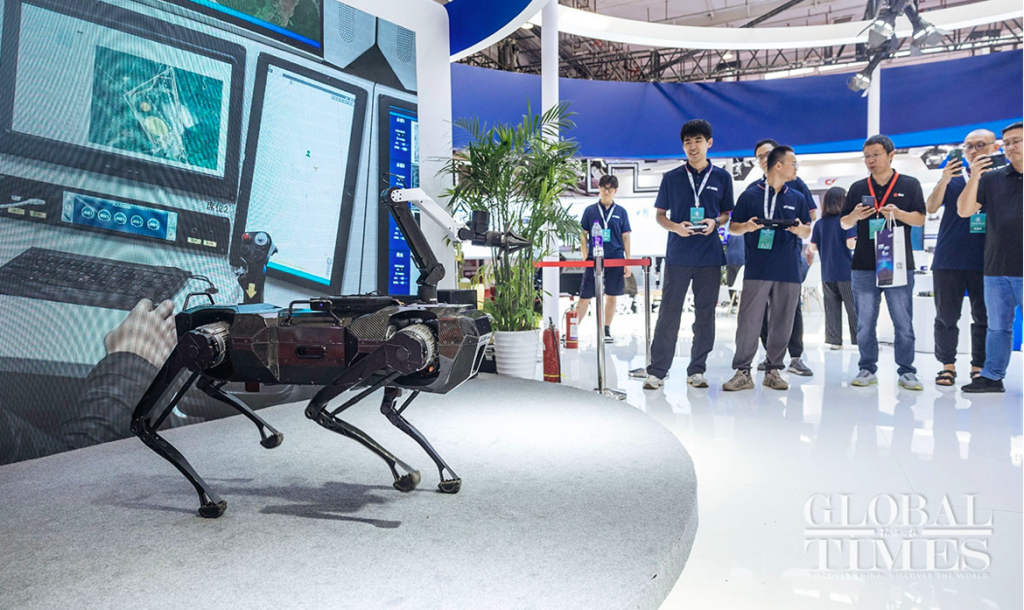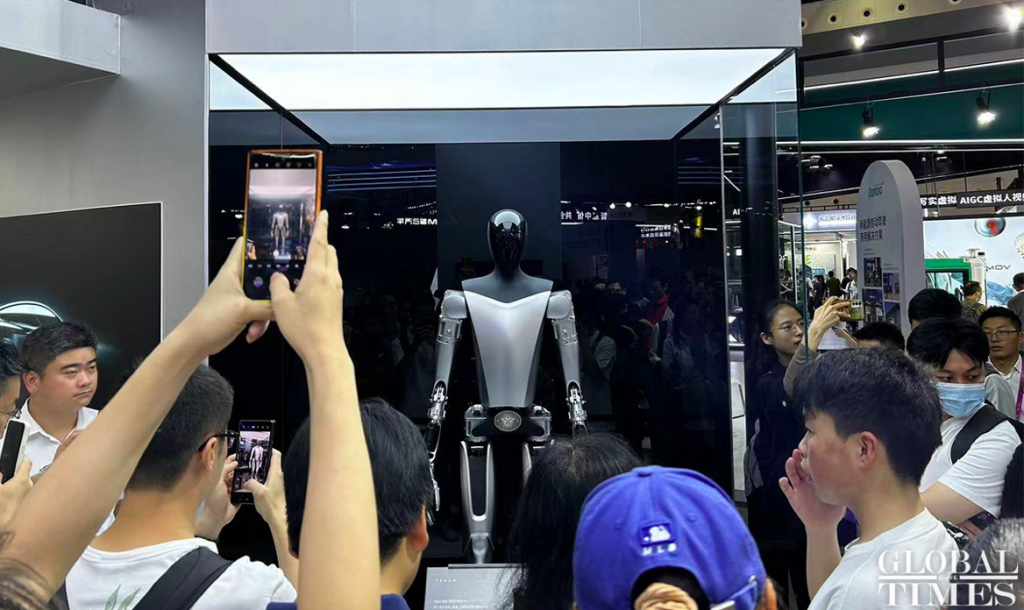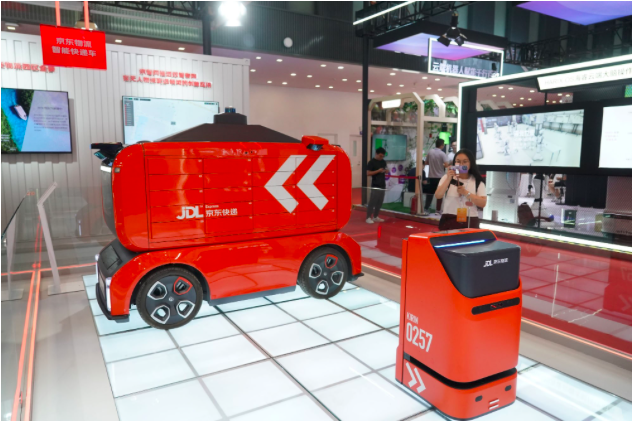2023 World Robot Conference inaugurated its proceedings in the Daxing district of Beijing. The event showcases an impressive assemblage of approximately 600 robots, hailing from over 140 companies both domestic and international. These robots find application across diverse industries, and the conference serves as a platform for disseminating the latest advancements in cutting-edge technologies.
China has announced its intention to amplify the integration of robots within manufacturing and industrial domains, recognizing the technology’s pivotal role in propelling growth and advancing the nation’s position along the industrial hierarchy.
Evidently, China stands as the globe’s one of premier market for robots.
The concept of robots taking over the world has long been a staple of science fiction literature and movies, sparking both fascination and apprehension. As technology continues to advance and robots become increasingly sophisticated, questions about their potential to dominate society have gained traction. However, it’s crucial to distinguish between the hype of science fiction and the realities of the present and future. In this article, we delve into the topic of whether robots will truly take over the world or if the narrative is more nuanced than it seems.
The Rise of Robotics and Artificial Intelligence
Robotic technology has made significant strides in recent decades, owing to breakthroughs in artificial intelligence (AI), machine learning, and advanced sensors. Robots have found their way into various industries, from manufacturing and healthcare to finance and entertainment. They perform tasks that range from routine and mundane to complex and intricate, often enhancing efficiency and precision.
Limits of Current Technology
While robots have become increasingly sophisticated, their capabilities are still limited to the tasks they are designed for. Current AI systems excel in narrow domains but lack the broad understanding and adaptable reasoning exhibited by humans. Robots remain tools that execute programmed instructions, unable to make autonomous decisions in unfamiliar situations.
Misconceptions and Realities
The notion of robots taking over the world is often rooted in misconceptions amplified by popular media. In reality, machines lack motivations, emotions, and consciousness. Concepts like self-awareness and desires are not within the purview of contemporary robotic systems. Concerns about robots turning against humans, as seen in movies like “The Terminator,” are more fiction than fact.
Collaboration, Not Domination
A more realistic perspective is that of humans and robots working collaboratively rather than robots asserting dominance. Many industries are adopting a collaborative robot approach, where machines assist humans in tasks, enhancing productivity and reducing physical strain. This symbiotic relationship showcases the potential for technology to complement human skills and amplify our abilities.
Ethics and Control
As robotics and AI continue to evolve, ethical considerations become paramount. The responsibility of ensuring that robots are developed and used ethically lies with humans. Safeguards, regulations, and ethical guidelines are essential to prevent unintended consequences and misuse of technology.
The Future Outlook
The future of robotics will likely be marked by increased integration into various aspects of society. However, the idea of robots autonomously taking control of the world remains speculative. Rather than fearing a dystopian future, the focus should be on steering technological advancements in a direction that aligns with human values and aspirations.
Conclusion
The fear of robots taking over the world is a product of science fiction and exaggerated perceptions. While robots are becoming more advanced and integral to our lives, they lack the motives and consciousness often associated with domination. The future is one of collaboration and coexistence, where robots complement human abilities and contribute to progress. As we shape the trajectory of technology, the emphasis should be on responsible development, ethical considerations, and the harmonious integration of robotics into our ever-evolving society.
Photos: Li Hao, Xinhua, Simon Song, Qi Xijia

